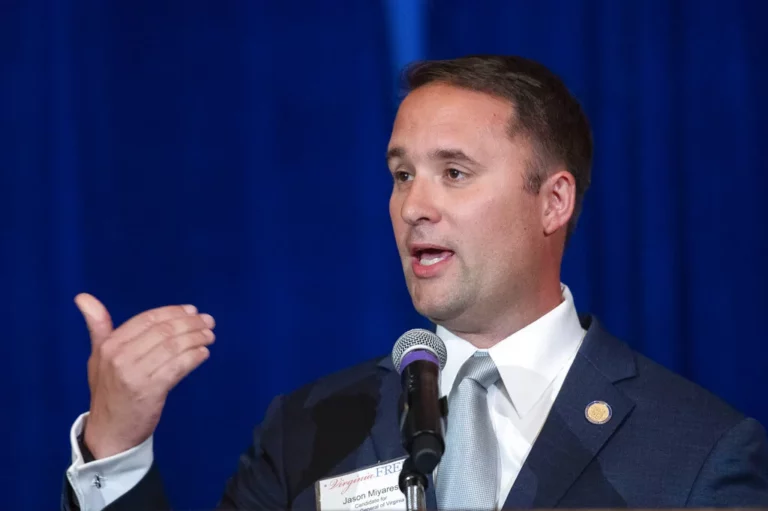
Virginia’s attorney general asked the Supreme Court on Monday to step in quickly and halt a recent order by a lower court that forced the state to restore more than 1,600 possible noncitizens to its voter registration list.
Virginia Attorney General Jason Miyares, a Republican, argued in a petition to the high court that the lower court’s “election-eve injunction,” which was issued on Friday and affirmed by the 4th Circuit Court of Appeals, violated Virginia’s law and “common sense.”
The lower court had sided with the Department of Justice and liberal voting rights groups by ordering Virginia election officials on Friday, less than two weeks out from the 2024 election, to stop a process of cross-checking Department of Motor Vehicles data against voter registration lists to check for voters’ citizenship status.
The court also ordered Virginia election officials to reinstate anyone it had removed through that process during the 90-day window before the election, a time federal law designates as a “quiet period” during which states are barred from systematically removing people from their voter rolls to prevent accidentally unregistering eligible voters.
Miyares said Virginia would, because of the order, be forced to restore more than 1,600 “self-identified noncitizens” to its voter registration list, which Miyares said would sow confusion among election officials who had been conducting noncitizen removal efforts for years.

“The injunction, which prohibits the application of a law that has been on the books since the Justice Department precleared it in 2006, will also irreparably injure Virginia’s sovereignty, confuse her voters, overload her election machinery and administrators, and likely lead noncitizens to think they are permitted to vote, a criminal offence that will cancel the franchise of eligible voters,” Miyares argued.
In a sign the Supreme Court was planning to expedite addressing Virginia’s petition, the high court ordered the DOJ and voting rights groups to submit their replies by Tuesday afternoon.
Miyares’s petition came after three 4th Circuit judges, two Obama appointees and one Biden appointee, agreed with the lower court’s ruling, saying in an order over the weekend that Miyares’s argument was “weak” because the state had not independently verified that each of the people removed from the voter roll was a noncitizen. That meant the removals were systematic, and federal law expressly bans systematic removals during the quiet period, the three-judge panel observed.
The panel said it was in the public interest to keep the voters on the rolls in case “faulty databases or bureaucratic mistakes” caused the accidental removal of citizens, who would have little time to correct the state’s error.
2024 ELECTIONS LIVE UPDATES: LATEST NEWS ON THE TRUMP-HARRIS PRESIDENTIAL RACE
The panel noted that the state had other means to keep the possible noncitizens from voting.
“Under the preliminary injunction, appellants remain able to prevent noncitizens from voting by canceling registrations on an individualized basis or prosecuting any noncitizen who votes — options the district court specifically flagged at the hearing and in its written order,” the three-judge panel wrote.






